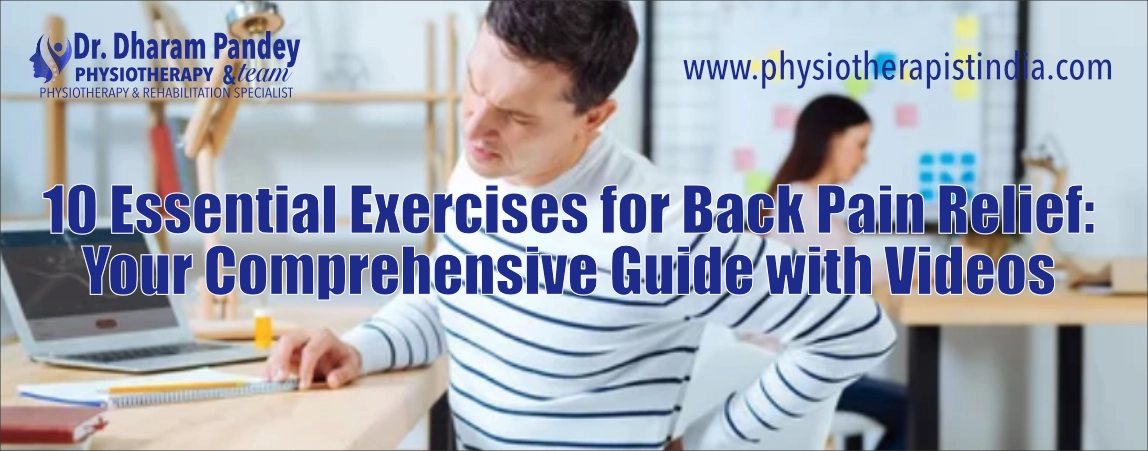WHAT WE TREAT
Rotator Cuff Syndrome
Best Physiotherapist in Delhi
Rotator cuff syndrome is a common source of shoulder pain. Learn about its causes, symptoms, diagnosis, and effective treatments
Rotator Cuff Syndrome
The shoulder is a remarkably flexible joint that allows us to perform various activities. However, it’s also susceptible to injuries and conditions, one of which is rotator cuff syndrome. Understanding this syndrome, its causes, symptoms, diagnosis, and available treatments is essential for those dealing with shoulder pain. In this comprehensive guide, we’ll delve into the details of rotator cuff syndrome.
What Is Rotator Cuff Syndrome?
Rotator cuff syndrome, also known as rotator cuff impingement or rotator cuff tendinopathy, refers to a condition in which the tendons of the rotator cuff become irritated, inflamed, or damaged.

The Anatomy of the Rotator Cuff
The rotator cuff is a group of muscles and tendons in the shoulder that connect the upper arm bone (humerus) to the shoulder blade (scapula). These muscles and tendons are crucial for maintaining shoulder stability and facilitating various arm movements.
Causes and Risk Factors
Causes of Rotator Cuff Syndrome
The syndrome can be caused by various factors, including overuse, trauma, age-related degeneration, and anatomical factors.
Risk Factors for Developing Rotator Cuff Syndrome
Certain factors, such as age, occupation, and participating in overhead activities, can increase the risk of developing this syndrome.
Symptoms of Rotator Cuff Syndrome
Common Symptoms People with rotator cuff syndrome often experience shoulder pain, especially when performing overhead activities.
Additional Symptoms Other symptoms may include weakness, limited range of motion, and pain at night, which can disrupt sleep.
Diagnosis
Clinical Evaluation A healthcare provider will typically begin with a physical examination and a review of the patient’s medical history.
Imaging Tests Imaging, such as X-rays or magnetic resonance imaging (MRI), may be conducted to confirm the diagnosis and assess the extent of the damage.
Non-Surgical Treatments
Rest and Activity Modification Resting the affected shoulder and modifying activities that exacerbate the symptoms is often the first step in treatment.
Physical Therapy Physical therapy can help strengthen the rotator cuff muscles and improve shoulder mechanics.
Medications Non-steroidal anti-inflammatory drugs (NSAIDs) and pain relievers may be prescribed to manage pain and inflammation.
Corticosteroid Injections In some cases, corticosteroid injections can provide relief from pain and inflammation.
Surgical Options
Arthroscopic Debridement Arthroscopy may be performed to remove damaged tissue and smooth the affected area.
Rotator Cuff Repair Surgery For significant tears, surgery may be necessary to repair or reattach the torn tendons.
Recovery and Rehabilitation
Recovery Timeline Recovery after rotator cuff syndrome treatment can take several weeks to several months.
Rehabilitation Exercises Physical therapy and rehabilitation exercises are essential for regaining strength and function.
Preventing Rotator Cuff Syndrome
Preventive Measures Understanding proper shoulder mechanics, warming up before exercise, and strengthening the rotator cuff can help reduce the risk of developing this syndrome.


Cutting-Edge Technology
Our commitment to using the best technology extends to various aspects of physiotherapy:
- Robotic Assistance: We employ robotics for gait training, aiding patients with mobility impairments. These devices facilitate improved motor control and muscle activation.
- Electrotherapy: Techniques like TENS, IFT, and Ultrasound Therapy are used to target pain relief and accelerate tissue healing.
- Virtual Reality (VR): We utilize VR and interactive gaming for engaging and enjoyable rehabilitation, increasing patient motivation and compliance with treatment.
Frequently Asked Questions
Reach out to us if you have further Questions - We're here to help!
FAQs: Rotator Cuff Syndrome
Q1: Can rotator cuff syndrome heal on its own without treatment?
In some cases, mild cases of rotator cuff syndrome may improve with rest and activity modification. However, more severe cases often require medical intervention.
Q2: What are the long-term effects of untreated rotator cuff syndrome?
Untreated rotator cuff syndrome can lead to chronic pain, muscle weakness, and reduced shoulder function.
Q3: Can physical therapy cure rotator cuff syndrome completely?
Physical therapy can significantly improve the condition, but the extent of recovery varies depending on the severity of the syndrome and individual factors.
Q4: Is surgery the only option for treating rotator cuff syndrome with a tear?
Surgery may be recommended for significant tears, but non-surgical treatments are often explored first.
Q5: Can I continue participating in sports after recovering from rotator cuff syndrome?
Your ability to return to sports or physical activities depends on the extent of your recovery and the advice of your healthcare provider.
Rotator cuff syndrome is a common cause of shoulder pain that can affect daily life and activities. However, with proper diagnosis and timely intervention, individuals can find relief and regain shoulder function. Understanding the causes, symptoms, diagnosis, and treatment options for rotator cuff syndrome is essential for those dealing with shoulder pain. Early intervention, whether through non-surgical or surgical means, can significantly improve the outcome and quality of life for individuals affected by this condition.
Have Questions or Need Assistance?
Don’t hesitate to reach out to us:
Book Appointment with Experts
- Call/WhatsApp: +9818911195
- Book Appointment with Experts
We are here to lend our support on your journey toward improved movement and overall well-being.
See all Blogs & Articles
See all Conditions we Treat
Note: Content provided here is for informational purposes only and is not a substitute for professional medical advice or diagnosis. If you believe you are experiencing pain or any other health-related issue, it is important to seek the advice of qualified healthcare professionals for a proper evaluation and treatment plan.
See all How it Works.









